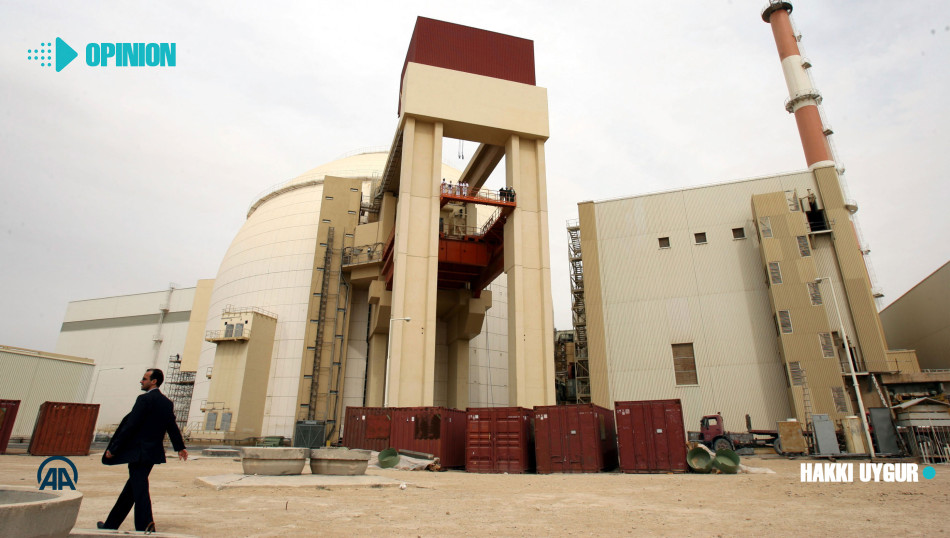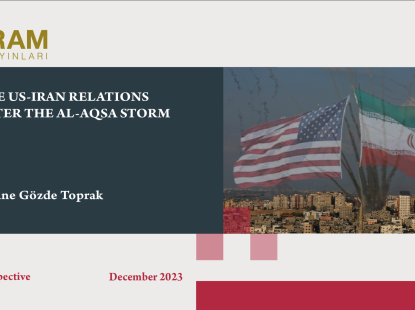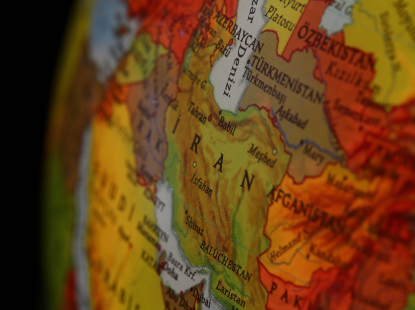Iran’s Uranium Enrichment Decision and Its Implications
The statements made by Iranian President Hassan Rouhani on the 3rd of July as well as by other officials before and after him, including Abbas Araghchi, Deputy Foreign Minister, regarding Iran’s determination to precipitate its nuclear activities again are the final loop of the ever-increasing US-Iran tension over the past year. It was promulgated that Tehran would resume all nuclear activities including unlimited uranium enrichment and plutonium production, stressing that the European countries have neglected their legal and financial obligations under the Joint Comprehensive Plan of Action (JCPOA). However, Iran’s Foreign Minister Javad Zarif declared, in numerous statements, that Iran could terminate its activities again if the European countries fulfil their obligations or if the US returns to the JCPOA. Moreover, Iranian Intelligence Minister Mahmoud Alavi reverberated similar remarks.
Iran had previously announced that it would take several precautions due to both the unilateral withdrawal of the US from the JCPOA and the indolence of the European countries, Iran’s most significant trading partners. In fact, last May, Rouhani underlined that after two months Iran would reinstitute parts of its nuclear activities. Furthermore the INSTEX mechanism, upon which Iran fervently built its hope was a dead duck and the mechanism will be used for items not subject to US sanctions with a meager budget of 4-5 million dollars, has become the last straw for Iran. For the past year, Iran has exclusively stated that oil sales are a red line and has demanded a guarantee in this regard. Moreover, with the removal of temporary exemptions of the Islamic Republic’s top oil importers, daily oil sales, which were 2.5 million barrels prior to sanctions, have fallen to 300-400 thousand barrels. The raised alarms for the Iranian economy.
Since the US withdrawal from the nuclear deal, the Trump administration has indicated that they are not seeking regime change in Iran, rather a more appropriate nuclear deal. Besides, Trump has remarked that he is ready for unconditional negotiations with Iran under the shadow of harsh sanctions. In accordance with his discourse, Trump has exhibited a flexible attitude in the face of Iran’s strategy of escalating tension, especially over the last two months. Trump even acknowledged that Iran shot down a US Navy drone instead of a manned aircraft. Moreover, attempts to alleviate the soaring tension have not been limited to the US administration. The UAE also announced that there was no evidence that Iran was involved in the tanker attacks near the port of Al-Fujairah in May.
The US and its regional allies’ efforts to mitigate tensions with Iran are justifiable. After all, the Trump administration’s austere economic sanctions are causing structural deterioration of the Iranian economy. Subsequently, this has already put pressure on Iran’s regional proxy organizations. On the other hand, in the event of a comprehensive military confrontation, US allies such as Israel and especially the Gulf monarchies are in an exceedingly vulnerable position against Iranian military capacity. In other words, the financial and humanitarian cost of a potential war with Iran is beyond a tolerable level to any power except the US. For this reason, forcing Iran, which is overwhelmed by economic constraints and potential street demonstrations, to make concessions on ballistic missiles and its militia forces at the negotiation table might be considered as the most feasible option.
Iran’s decision will yield multifarious outcomes. First, with the resumption of nuclear activities, the EU would be fully engaged with the US to confront Iran. Moreover, political support from countries such as China and Russia to Iran will dwindle since, as Putin expressed, after Iran launches its activities, no one will recollect that it was the US that initially broke the deal. Conceivably, many countries and international organizations will implore Iran to compromise and comply with the JCPOA. The superiority of ethics and discourse which Iran currently possesses will gradually shift. Furthermore, the calls for limited military intervention in Iran will become more predominant and tension will plainly heighten. How can Tehran’s course of action be evaluated considering the conceivable negative implications?
Actually, the Obama administration exposed the Iran’s economic weaknesses during the sanctions imposed on Iran between 2011 and 2104. Moreover, the Iranian press reported that some of the names who abetted circumventing these sanctions divulged vital information pertaining to the methods they used during their trial in the US. Therefore, Trump’s sanctions, although, were unilateral unlike Obama’s, proved far more advantageous, and they have effectively shaken the foundation of the Iranian economy. Another salient deviation from Obama’s period is that Iran lacked leverage over its adversary as it had not engaged in nuclear activities since May 2018. So, while the Obama era sanctions marred Iran’s economy, Iran incessantly proliferated its uranium enrichment capacity and contrived to reach its potential to acquire a nuclear bomb. Therefore, the fact that the two sides had deterrent means paved the way for the JCPOA. If the deal had not been signed, this could presumably turn into another North Korean. In such a case, Iran could have become a fully isolated country that was testing nuclear weapons while unable to provide its most basic economic needs.
Seemingly, an analogous scenario may be experienced today. The economic and political burdens on Iran will intensify; however, Iran will not stand idle with its hands tied in return. In particular, the scope of Iranian nuclear capability will periodically be publicized by Iranian officials. In this way, Tehran will augment pressure on the international community and the Trump administration. Trump’s only recourse to break this loop would be to launch an attack on Iran’s nuclear facilities. Furthermore, the cyber-attack carried out during the Obama administration, rendered many Iranian centrifuges dysfunctional and nuclear activity delays arose. However, Iran is considered more experienced in cybersecurity and has taken incumbent measures. Under the circumstances, the only egress seems a physical attack, which is the riskiest scenario for everyone.
Needless to say, that some of Trump’s comrades, particularly John Bolton, have sought a military option against Iran, however, the Pentagon and intelligence agencies disfavor a military operation due to the foreseeable costs. As a matter of fact, when George W. Bush’s government was broached with parallel subjects, 16 US intelligence organizations drafted a joint letter and emphasized grave concerns and dangers of the operations. Therefore, with the objection of well-informed figures of the field and Trump’s fairly anti-war stance before his election, military options did not gain much currency in the last year. Even after the downing of a US surveillance drone by Iran, President Donald Trump stated that he halted a planned strike on Iranian targets due to possible human losses. Nevertheless, several of Trump’s statements such as “Iran is playing with fire”, “there would not be a long war” and “I don’t need an exit strategy” might imply that Trump is at the end of his rope. In this case, Trump may consider the suggestions of the hawk team surrounding his circle. However, in order to implement this scenario, warnings and threats regarding Iran’s withdrawal from the deal will probably be voiced more in the international and US public. Thereby, facilitating necessary public support. From now until the upcoming elections, Trump must convince US voters that there is no alternative but to attack Iran. For this reason, in the coming days, it will not be surprising to witness the news and comments in both the US and international media frequently accusing the Iranian administration of endeavoring to amass nuclear bombs by leaving the JCPOA.
This article was first published at Anadolu Agency (AA) on July 5, 2019.
https://www.aa.com.tr/tr/analiz/iran-in-uranyum-zenginlestirme-karari-ve-muhtemel-sonuclari/1523960











